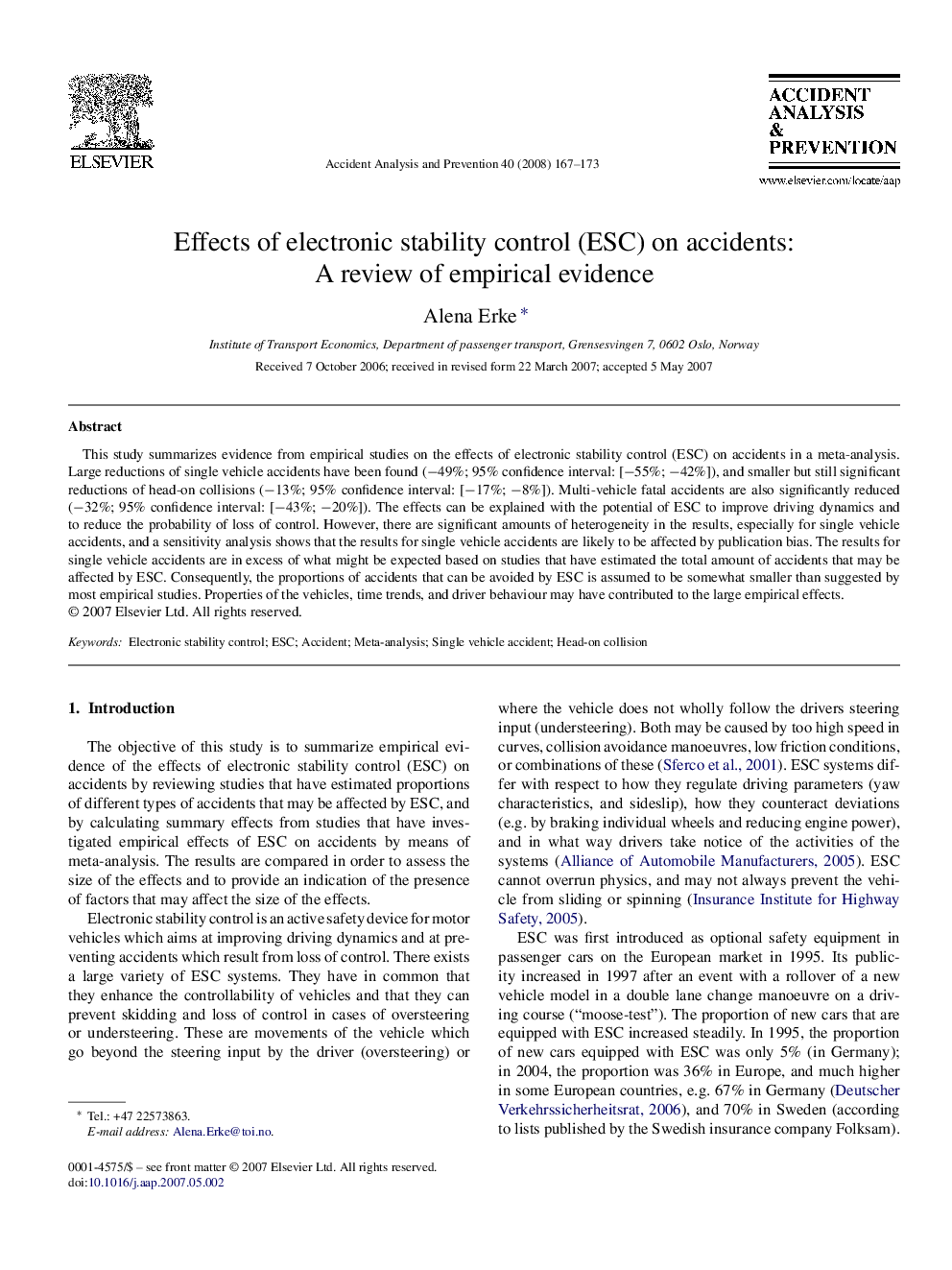| Article ID | Journal | Published Year | Pages | File Type |
|---|---|---|---|---|
| 573655 | Accident Analysis & Prevention | 2008 | 7 Pages |
This study summarizes evidence from empirical studies on the effects of electronic stability control (ESC) on accidents in a meta-analysis. Large reductions of single vehicle accidents have been found (−49%; 95% confidence interval: [−55%; −42%]), and smaller but still significant reductions of head-on collisions (−13%; 95% confidence interval: [−17%; −8%]). Multi-vehicle fatal accidents are also significantly reduced (−32%; 95% confidence interval: [−43%; −20%]). The effects can be explained with the potential of ESC to improve driving dynamics and to reduce the probability of loss of control. However, there are significant amounts of heterogeneity in the results, especially for single vehicle accidents, and a sensitivity analysis shows that the results for single vehicle accidents are likely to be affected by publication bias. The results for single vehicle accidents are in excess of what might be expected based on studies that have estimated the total amount of accidents that may be affected by ESC. Consequently, the proportions of accidents that can be avoided by ESC is assumed to be somewhat smaller than suggested by most empirical studies. Properties of the vehicles, time trends, and driver behaviour may have contributed to the large empirical effects.
